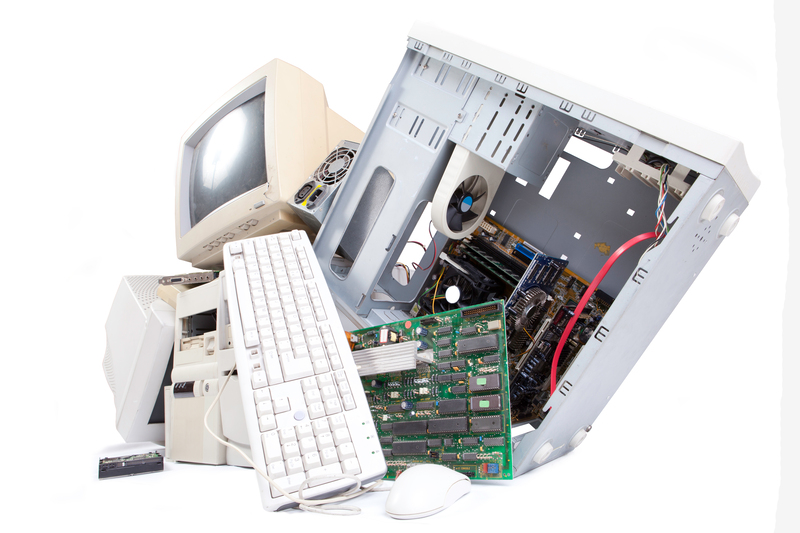Efficient Waste Prevention for Every Household: A Comprehensive Guide
Reducing household waste is a crucial step towards sustainability and environmental conservation. Adopting efficient waste prevention strategies at home not only minimizes your ecological footprint but also saves money and resources. This comprehensive guide explores practical solutions every household can implement.
Why Household Waste Prevention Matters
Efficient waste prevention in homes plays a vital role in addressing mounting environmental concerns. Each year, households generate tons of waste, much of which ends up in landfills. By adopting effective waste reduction measures, families can:
- Conserve natural resources
- Reduce greenhouse gas emissions
- Save money on waste disposal and purchases
- Promote a cleaner, healthier living environment
The first step towards efficient waste prevention is understanding the types of household waste and where improvements can be made.

Understanding Household Waste
Types of Household Waste
- Organic waste (food scraps, yard trimmings)
- Paper and cardboard
- Plastic waste
- Metals and glass
- Hazardous materials (batteries, electronics)
Knowing what you throw away is the foundation for implementing practical and efficient waste reduction strategies.
Top Strategies for Efficient Waste Prevention at Home
1. Adopt Smart Shopping Habits
- Plan meals and create shopping lists to purchase only what you need, reducing food waste.
- Buy in bulk when possible to decrease packaging waste.
- Choose products with minimal or recyclable packaging.
- Opt for reusable shopping bags, containers, and water bottles.
Smart shopping is one of the most effective ways to prevent waste generation in every household. By making mindful choices at the store, you can significantly lower the amount of unnecessary waste brought into your home.
2. Practice the 3 R's: Reduce, Reuse, Recycle
The principle of "Reduce, Reuse, and Recycle" is the cornerstone of efficient household waste prevention.
- Reduce: Avoid single-use products and excessive packaging.
- Reuse: Find new uses for containers, jars, bags, and old clothes.
- Recycle: Sort recyclables properly and follow your local recycling guidelines.
Encouraging all family members to take part in these activities amplifies the impact and fosters a waste-conscious household culture.
3. Compost Organic Waste
One of the most significant contributors to household waste is food and yard debris. Setting up a composting system in your garden or balcony can efficiently handle this material by turning it into nutritious soil for your plants.
Benefits of composting include:- Reducing the volume of waste sent to landfill
- Creating a natural fertilizer for gardens
- Decreasing methane emissions from landfills
Even homes without outdoor space can benefit from indoor compost bins or community composting programs.
4. Control Food Waste
Food waste is one of the largest categories of household waste. Efficiently preventing food waste involves:
- Storing fruits and vegetables properly to increase shelf-life
- Using leftovers creatively in soups, stews, and casseroles
- Understanding "best before" and "use by" dates
- Keeping a regular inventory of pantry and fridge items
Smart food management is a cornerstone of efficient waste reduction at home and can significantly impact your overall waste output.
5. Use Reusable Materials and Products
- Switch to reusable kitchenware (cloth napkins, glass jars, stainless steel straws)
- Use cloth bags for produce instead of single-use plastic bags
- Invest in long-lasting cleaning tools (sponges, brushes)
Making the transition to reusable goods is a powerful step in the journey towards efficient waste prevention for every household.
Minimizing Hazardous and Electronic Waste at Home
Handling Hazardous Household Waste
- Safely store and label chemicals away from children and pets
- Take batteries, paint, and cleaning agents to your local hazardous waste collection site
- Use eco-friendly alternatives to toxic products whenever possible
Dealing with E-Waste Efficiently
- Donate or sell functioning electronics
- Recycle outdated electronics at authorized e-waste centers
- Avoid "fast electronics" purchases--choose durable, upgradeable models
Proper disposal and prevention of hazardous and electronic waste not only protect the environment but also human health.
Smart Waste Management Systems for Households
Segregation at Source
Setting up separate waste bins for recyclables, compostables, and landfill waste is an easy yet highly efficient way to prevent cross-contamination and maximize recycling rates.
Regular Waste Audits
- Review what's in your bins weekly
- Identify areas where you can further reduce waste
- Set goals for minimizing waste over time
Engage the Entire Family
- Assign waste prevention roles to each household member
- Educate children about recycling and reuse through interactive games
- Celebrate milestones and share successes to keep everyone motivated
Efficient house waste management is a collective effort. When everyone contributes, results are more sustainable and long-lasting.
Reducing Waste Through Smart Technology and Apps
Apps for Efficient Waste Prevention
- Apps that remind you to eat food before it expires
- Online platforms for buying and selling used household items
- Digital meal planners linked to grocery lists
Smart Appliances
- Refrigerators with inventory tracking
- High-efficiency washing machines reducing water and detergent use
- Composters that process organic waste indoors
Leveraging technology makes it easier than ever for households to establish effective and efficient waste prevention routines.
Community Initiatives and Extended Producer Responsibility
In addition to individual house waste minimization, community actions widen the impact. Look out for:
- Neighborhood composting programs
- Zero-waste shops and refill stations
- Local recycling drives and "waste-free" events
- Advocacy for manufacturers to use sustainable packaging and take back end-of-life products
Joining community waste prevention initiatives magnifies each household's impact and fosters a culture of sustainable living.
10 Quick Tips for Efficient Waste Prevention in Every Home
- Think before you buy. Ask if you truly need the item or if there's a reusable alternative.
- Use digital subscriptions instead of paper magazines
- Repurpose gift wrap, jars, and containers
- Choose refills for cleaning products
- Organize regular swaps of clothes, books, and toys
- Store food in airtight containers for longer freshness
- Designate a "reuse" box for creative projects
- Cancel junk mail and unsubscribe from paper bills
- Bring a coffee thermos or travel mug to cafes
- Teach kids about the benefits of efficient waste reduction
The Environmental and Economic Benefits of Efficient Household Waste Prevention
By cutting unnecessary waste, every household can benefit in two major ways:
Environmental Benefits
- Reduced landfill use and slower resource depletion
- Lower carbon footprint and less pollution
- Cleaner communities and waterways
Economic Benefits
- Spending less on disposable products
- Lower trash collection and disposal fees
- Saving energy and resources through efficient practices
Waste prevention is a win-win for households and the environment.

Overcoming Common Challenges in Household Waste Prevention
- Lack of time: Start with small changes--batch meal prep, sort waste daily, involve the family.
- Limited space: Opt for compact composting and use vertical storage for reusable goods.
- Community limitations: Connect with local zero-waste networks or initiate neighborhood programs.
- Habit change: Celebrate small wins and gradually increase your household's waste reduction ambitions.
Conclusion: Small Changes, Big Impact
Implementing efficient waste prevention strategies for households doesn't have to be overwhelming. By making incremental changes in shopping, food management, reuse, and waste sorting, families can achieve substantial environmental and economic benefits. Remember, every action matters--from swapping single-use plastics for reusables to composting kitchen scraps.
Efficient waste prevention for every household starts with awareness and commitment. Empower your home to become part of a cleaner, healthier, and more sustainable world--one simple habit at a time.
Start Your Waste Prevention Journey Today!
- Download a waste tracking app
- Host a household waste audit
- Share your progress and tips with neighbors and friends
- Remember: Every household's contribution matters--for our planet and future generations.